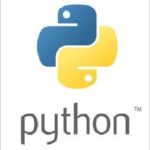David Bolton from Slashdot shows how ‘embarrassingly parallel’ code can be sped up over 2000x (not percent) by utilizing Intel tools including the Intel Python compiler and OpenMP. “The Intel Distribution for Python* 2017 Beta program is now available. The Beta product adds new Python packages like scikit-learn, mpi4py, numba, conda, tbb (Python interfaces to Intel Threading Building Blocks) and pyDAAL (Python interfaces to Intel Data Analytics Acceleration Library). “
Search Results for: Python code
Exascale: Aurora Early Adopter Series March 30 – Data Parallel Python, Bringing oneAPI to Python
March 4, 2022 — The Argonne Leadership Computing Facility (ALCF) will hold an online event on Wednesday, March 30 at 11 am Central Time as part of its Aurora Early Adopter Series – Praveen Kundurthy, Intel senior technical evangelist, AI and oneAPI, will cover how Data Parallel Python can be used to develop high-performing code […]
Video: Profiling Python Workloads with Intel VTune Amplifier
Paulius Velesko from Intel gave this talk at the ALCF Many-Core Developer Sessions. “This talk covers efficient profiling techniques that can help to dramatically improve the performance of code by identifying CPU and memory bottlenecks. Efficient profiling techniques can help dramatically improve the performance of code by identifying CPU and memory bottlenecks. We will demonstrate how to profile a Python application using Intel VTune Amplifier, a full-featured profiling tool.”
CUDA-Python and RAPIDS for blazing fast scientific computing
Abe Stern from NVIDIA gave this talk at the ECSS Symposium. “We will introduce Numba and RAPIDS for GPU programming in Python. Numba allows us to write just-in-time compiled CUDA code in Python, giving us easy access to the power of GPUs from a powerful high-level language. RAPIDS is a suite of tools with a Python interface for machine learning and dataframe operations. Together, Numba and RAPIDS represent a potent set of tools for rapid prototyping, development, and analysis for scientific computing. We will cover the basics of each library and go over simple examples to get users started.”
Parallel Computing in Python: Current State and Recent Advances
Pierre Glaser from INRIA gave this talk at EuroPython 2019. “Modern hardware is multi-core. It is crucial for Python to provide high-performance parallelism. This talk will expose to both data-scientists and library developers the current state of affairs and the recent advances for parallel computing with Python. The goal is to help practitioners and developers to make better decisions on this matter.”
Parallelism in Python: Directing Vectorization with NumExpr
According to a new edition of Parallel Universe Magazine, from Intel, Python has several pathways to vectorization. These range from just-intime (JIT) compilation with Numba 1 to C-like code with Cython. A chapter from a recent edition of Parallel Universe Magazine, explores parallelism in Python.
Achieving Parallelism in Intel Distribution for Python with Numba
The rapid growth in popularity of Python as a programming language for mathematics, science, and engineering applications has been amazing. Not only is it easy to learn, but there is a vast treasure of packaged open source libraries out there targeted at just about every computational domain imaginable. This sponsored post from Intel highlights how today’s enterprises can achieve high levels of parallelism in large scale Python applications using the Intel Distribution for Python with Numba.
Making Python Fly: Accelerate Performance Without Recoding
Developers are increasingly besieged by the big data deluge. Intel Distribution for Python uses tried-and-true libraries like the Intel Math Kernel Library (Intel MKL)and the Intel Data Analytics Acceleration Library to make Python code scream right out of the box – no recoding required. Intel highlights some of the benefits dev teams can expect in this sponsored post.
Intel High-Performance Python Extends to Machine Learning and Data Analytics
One of the big surprises of the past few years has been the spectacular rise in the use of Python* in high-performance computing applications. With the latest releases of Intel® Distribution for Python, included in Intel® Parallel Studio XE 2019, the numerical and scientific computing capabilities of high-performance Python now extends to machine learning and data analytics.












